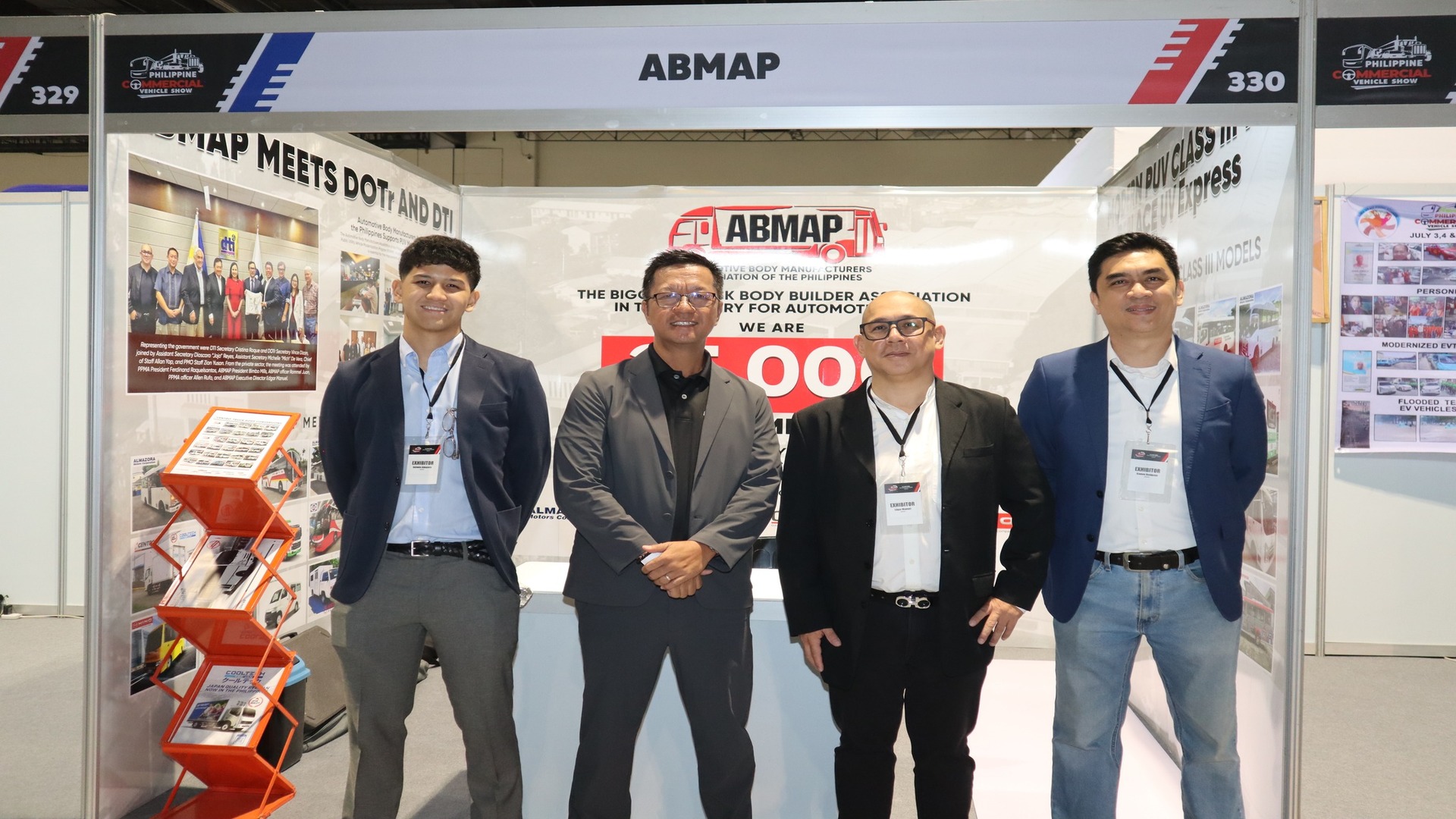The Automotive Body Manufacturers Association of the Philippines (ABMAP), led by its President Vicente Mills Jr., recently held a meeting with the Department of Transportation (DOTr) to discuss the ongoing implementation of the Public Transport Modernization Program (PTMP). The meeting focused on technical specifications for Modern Public Utility Vehicles (PUVs), route rationalization, and the critical role of local manufacturers in the success of the program.
DOTr Undersecretary Ramon Reyes announced that the Local Public Transport Route Plan (LPTRP) will now be managed directly by DOTr, with local government units serving in a supporting role. Route rationalization is already being piloted in Baguio, Mandaue, General Santos, Bacolod, and Antipolo, with 50 percent completion targeted by year-end and the remaining half to be finalized next year. The program is receiving support from both the World Bank and the Japan International Cooperation Agency (JICA).
According to Usec. Reyes, the PTMP will proceed in three major steps: rationalizing routes nationwide, capacity building for transport cooperatives, and signing a Memorandum of Understanding (MOU) with government financial institutions (GFIs), which will later extend to commercial banks. He noted that the extension of PUV franchising terms from seven to ten years has allowed banks such as the Development Bank of the Philippines (DBP) to resume lending. Scrapping facilities for phased-out units will also be located in Central Luzon and the southern regions.
ABMAP, strongly urged the government to support local manufacturing over the large-scale importation of completely built-up (CBU) units. He emphasized that Filipino manufacturers have already invested heavily in plant capability and capacity to produce modern PUVs that meet national standards. ABMAP also recommended that the six approved Philippine National Standards (PNS) developed by the Bureau of Philippine Standards be formally acknowledged in the DOTr’s draft circular, since over 80 percent of the technical specifications were derived from these standards. The association clarified that the approved PNS cover only body dimensions, while other vehicle components such as engines, brakes, steering, plastics, and rubber parts are already regulated by separate agencies.
ABMAP further highlighted the need for importers and distributors of modern PUVs to provide nationwide after-sales support, including competent technicians and readily available spare parts. This, the group stressed, is essential to protect operators and ensure long-term service reliability.
During the meeting, ABMAP President Vicente Mills Jr. reminded the DOTr panel that the slowdown of financial support from GFIs such as DBP and Landbank has hindered the smooth transition from traditional jeepneys to modernized PUVs. He cited several causes, including operators’ unpaid loans that led to repossessions, the non-utilization of automatic fare collection systems such as beep cards, and mismanagement within some cooperatives. Mills reiterated the urgency of finding solutions to these issues to safeguard the success of the PTMP.
ABMAP reaffirmed its commitment to work closely with DOTr and other stakeholders to ensure a sustainable, inclusive, and locally supported modernization program for the benefit of Filipino commuters and manufacturers alike.



